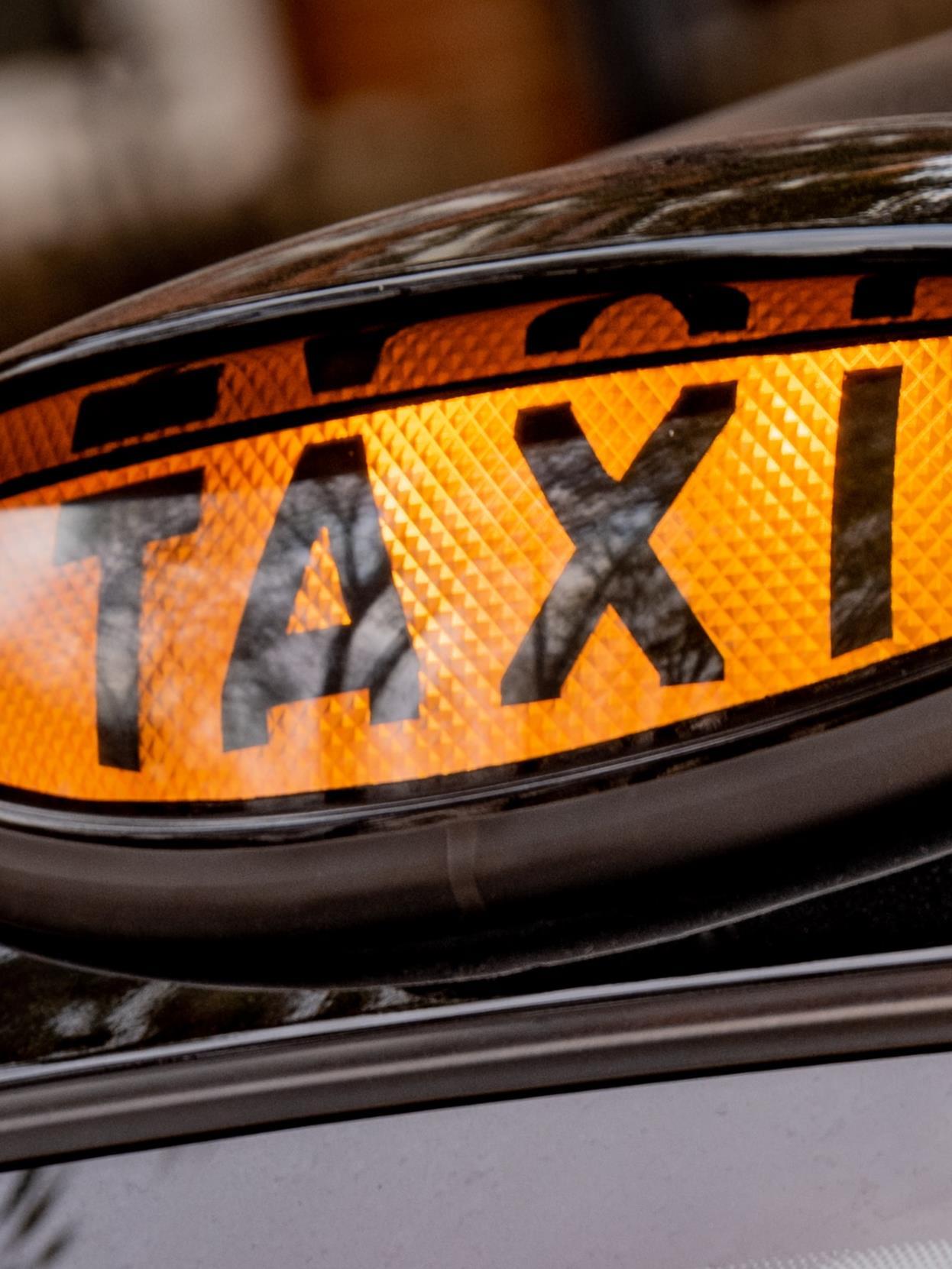

1 JANUARY 2023 - Edition 45 TheUK’s#1TaxiNewsSource Edition 45 | JANUARY 2023 OVER4millionmagazinereadsandcounting... Tablecredit:AUTOFLEET
TaxiPoint Chief Editor:
Perry Richardson
TaxiPoint Publishing & Advertising Manager: Lindsey Richardson

Visit us online at: www.taxi-point.co.uk


Write to us at: contact@taxi-point.co.uk
Advertising enquiries at: advertising@taxi-point.co.uk
The publishers reserve the right to refuse, withdraw, amend or otherwise deal with all advertisements without explanation. All advertisers must comply with the British Code of Advertising practice.
The views expressed in this publication are not necessarily those of the publishers.
All written and image rights are reserved by the author as displayed. Reproduction in whole or in part without prior permission from the publisher is strictly prohibited.

Copyright brand TaxiPoint 2023. Creative Common image licenses displayed where applicable.
Happy New Year and welcome to our latest and 45th edition of TaxiPoint Magazine.

2023 promises to be a big year for the industry. The results of reviewed regulations and court cases that have been running for some time should all be tied up, giving even greater clarity on the direction of the trade. The Department for Transport will see Best Practice Guidance signed off and the important Sefton Council versus Uber court case should be all over in the early part of 2023.
At TaxiPoint we have begun finalising our own goals for the upcoming year. We’re looking forward to attending the UITP Global Public Transport Summit in Barcelona. We’re proud to be representing the industry as an official Media Partner. The event covers all urban and regional transport modes and you can find more information on the four-day event (4-7 June) here.
TaxiPoint will be focusing on doubling users on both our free subscription news service and our new PRO offering in the New Year. We have sunset our app service, but this may return in the medium-term future. Keep your eyes peeled for the return of our PodCab podcast too.
I’d like to also say a big thank you to all our advertisers over 2022. Their support keeps TaxiPoint free to read for all. We look forward to working with you again over the next 12 months and are excited to begin working with a few new names too. So that’s goals set and engines started for 2023. Let’s hope it’s a good one!
Many thanks,
TaxiPoint Editor and Founder
2 JANUARY 2023 - Edition 45
EDITORIAL
In most local taxi licensing areas there are taxi driver representatives that champion the causes of cabbies in that area. They also might assist drivers with legal help on licensing issues and aid cabbies unsure of regulatory requirements. They are experts in their field and a vital tool for all professional drivers working in that region.
But what happens when taxi drivers need national representation? Who relays the industry needs to the Governments for example?
There are a couple of groups that claim to be national representatives of the taxi industry, but very little is seen or heard of them in the national press. It is also unclear how many drivers are members and what policies they support. A quick look on Companies House would suggest very little funds in the bank to achieve anything on a national scale.
One of the ‘taxi’ groups is also heavily linked to the private hire industry. With so many conflicting policies around things like cross-border and CCTV, how can a ‘one-size fits all’ representative group best serve two sectors? For example, Hackney Carriage wants crossborder abolished and PHV generally wants it to remain.

So, the big question... Is now the time for a nationwide representative to step forward that serves as an umbrella to all the local taxi associations across the UK? One that allows all Hackney Carriage drivers to have input on government policy and researches in -depth issues to present at a national level.
Let’s be clear, any national representation cannot ever be trumped by regional representation. They are vital to individual drivers where they work. However, when was the last industry driven research published? When was the last time you heard the national policies of the taxi industry discussed in the media? When was the last time you saw a successful national taxi lobby conducted?
Locally the taxi industry is a force to be reckoned with. However, nationally the industry is seen as weak.
Now’s the time for that to change in my humble opinion.
OPINION
GOTANOPINION?Emailcontact@taxi-point.co.uk
ARTICLE BY: PERRY RICHARDSON TAXIPOINT FOUNDER AND EDITOR

THREE TACTICS UBER COULD USE TO ENTICE CAB DRIVERS ONTO THE PLATFORM
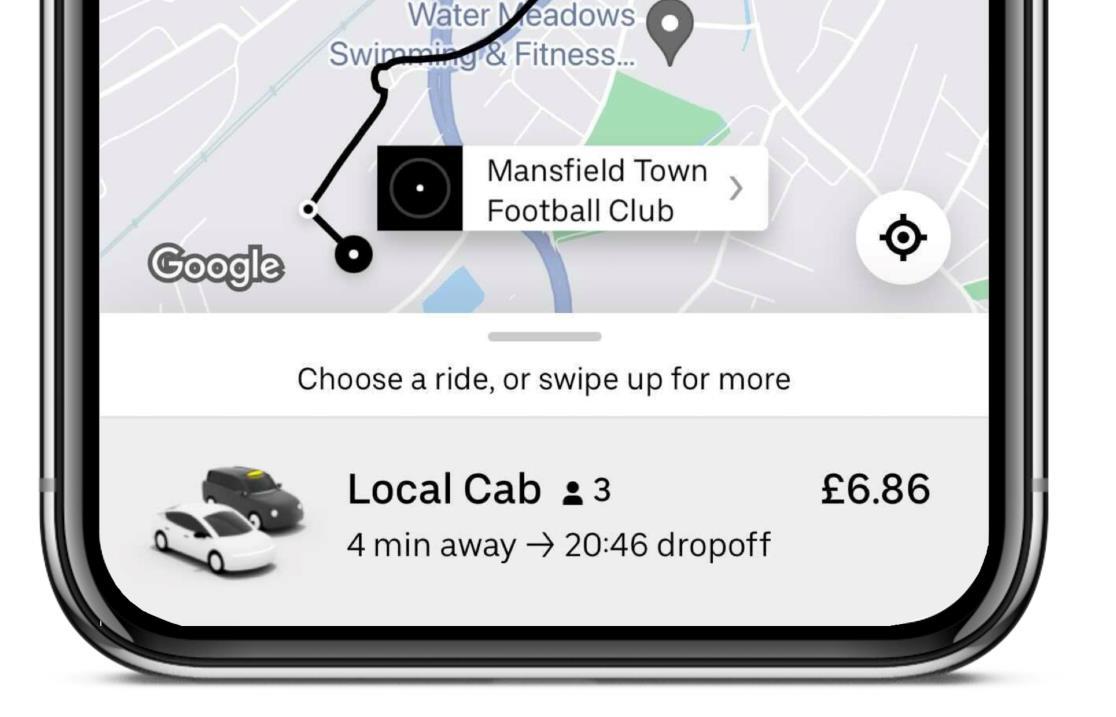
It’s no secret that ride-hailing giants Uber are looking to recruit traditional taxis onto their platform over the next couple of years.
The operator has moved fast in some global markets, including New York, Paris and Brussels, but how will they ever be able to entice UK cabbies onto the platform after a turbulent decade?
According to TaxiPoint readers, it may be a tough sell for a significant proportion of the taxi community. Many would say Uber played a key role in the demise of the taxi trade since arriving in June 2012, by taking ‘disruption’ to a new level. However, the industry has now recovered in terms of demand and many see Uber operating on a more
level playing field now that workers’ rights and VAT have been applied.
The global operator has been successful in its ‘Local Cab’ introduction, which allows regional private hire vehicle (PHV) operators to appear on the Uber platform across the UK. Many would not have seen this achievable some years back, such was the intensity of feeling against Uber.
Will taxi drivers join?
The vast majority will NOT for several reasons, but there may be some incentives that could prompt recruitment of drivers onto the platform.
5 JANUARY 2023 - Edition 45 UBERRECRUITMENT
Imagecredit:UBER
Let’s look at the THREE big reasons why they won’t join.
History. Many drivers in places like London, Glasgow, Liverpool, Edinburgh and other major cities have fought Uber for a number of years. There is little chance they will ever partner up with a company that has caused them so much stress over a significant time period.

Choice. There’s already a huge amount of choice on the market for cabbies looking to gain work on hailing app platforms.
Demand. Street work is commission free and instant with no run-ins and dead mileage costs. With demand high at the moment it has been a struggle for trusted black cab apps to cover demand at peak-times. Despite the mammoth drawbacks, don’t expect Uber to give up on the UK taxi industry. Just because something is difficult, it doesn’t make it impossible.
found in each region. Recruitment of taxi drivers has been tough in recent years, but could some savvy PR and investment make Uber look like the saviours of the taxi trade long-term by increasing the number of cabbies for the first time in a decade? It’s not completely implausible to see an ‘Uber Knowledge School’ enter the market.
Buying or partnering up with black cab apps and services. This has been a tactic used in other global cities. Uber reached agreements to list New York City and San Francisco taxis on the Uber app through partnerships with CMT, Curb, Yellow Cab SF, and Flywheel Technologies. Local cab has already picked up some smaller rural taxi firms in the UK, but could we see a more traditional black cab app appear on Local Cab for example? It’s not impossible.
Massive financial incentives. Money talks in the taxi industry. In fact, it speaks loudly in any sector of business. Big signing on fees
Here are THREE tactics Uber could use to attract Hackney Carriage taxis onto the Uber platform.
New drivers. We’ve discussed that current taxi drivers are unlikely to be interested, but what about the new drivers coming through? Uber have a wealth of PHV drivers they could fund through the varying licensing processes

6
UBERRECRUITMENT
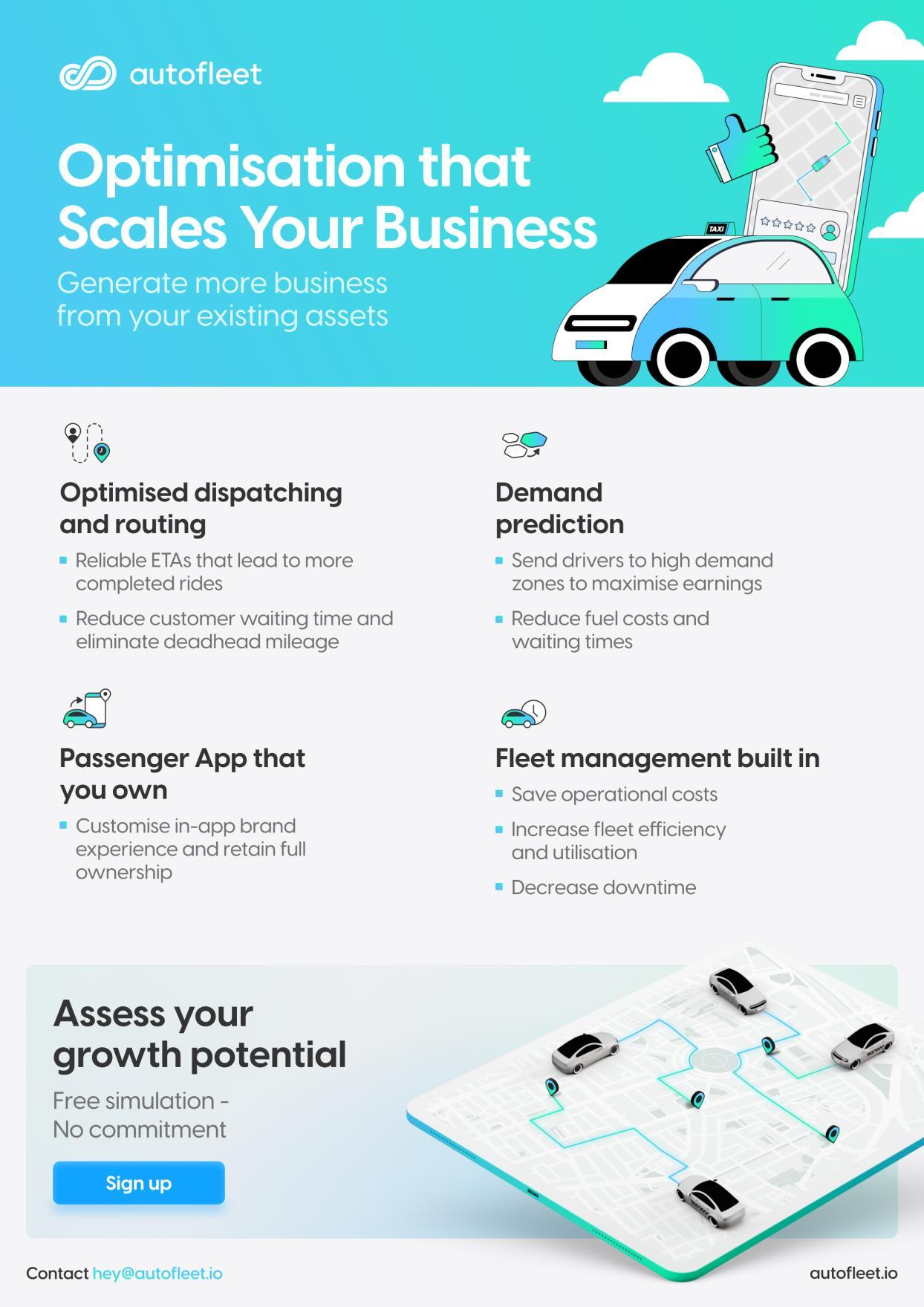
Taxi drivers and other self-employed individuals will have more time to prepare for Making Tax Digital (MTD) for Income Tax Self-Assessment (ITSA), following a government announcement delivered just before Christmas.
Understanding that self-employed individuals are currently facing a challenging economic environment, and the transition to MTD for ITSA represents a significant change to taxpayers and HMRC for how selfemployment income is reported, the Government is giving a longer period to prepare for MTD. The mandatory use of software is therefore being phased in from April 2026, rather than April 2024.
From April 2026, self-employed individuals and landlords with an income of more than £50,000 will be required to keep digital records and provide quarterly updates on their income and expenditure to HMRC


through MTD-compatible software. Those with an income of between £30,000 and £50,000 will need to do this from April 2027. Most customers will be able to join voluntarily beforehand meaning they can eliminate common errors and save time managing their tax affairs.
The Government has also announced a review into the needs of smaller businesses, and particularly those under the £30,000 income threshold. The review will consider how MTD for ITSA can be shaped to meet the needs of these smaller businesses and the best way for them to fulfil their Income Tax obligations. It will also inform the approach for any further roll out of MTD for ITSA after April 2027.
Eazitax’s Gary Jacobs spoke to TaxiPoint last year to explain the impact MTD will have on the taxi industry. Jacobs said: “We will inevitably have to accept Digital
SPECIALISEONATAXITOPIC?Thiscouldbeyourplatform. Email:contact@taxi-point.co.uk
TAXITAX
Record Keeping. However, the big hill to climb will be that there will have to be quarterly digital returns to HMRC. The scary bit in that is the word ‘quarterly’.
“That’s right we won’t be panicking about your tax returns and accounts once a year, but every three months!
“This means that we must find a way for you to get your stuff to us every three months and either you must produce it from software, or we must digitise it for you!
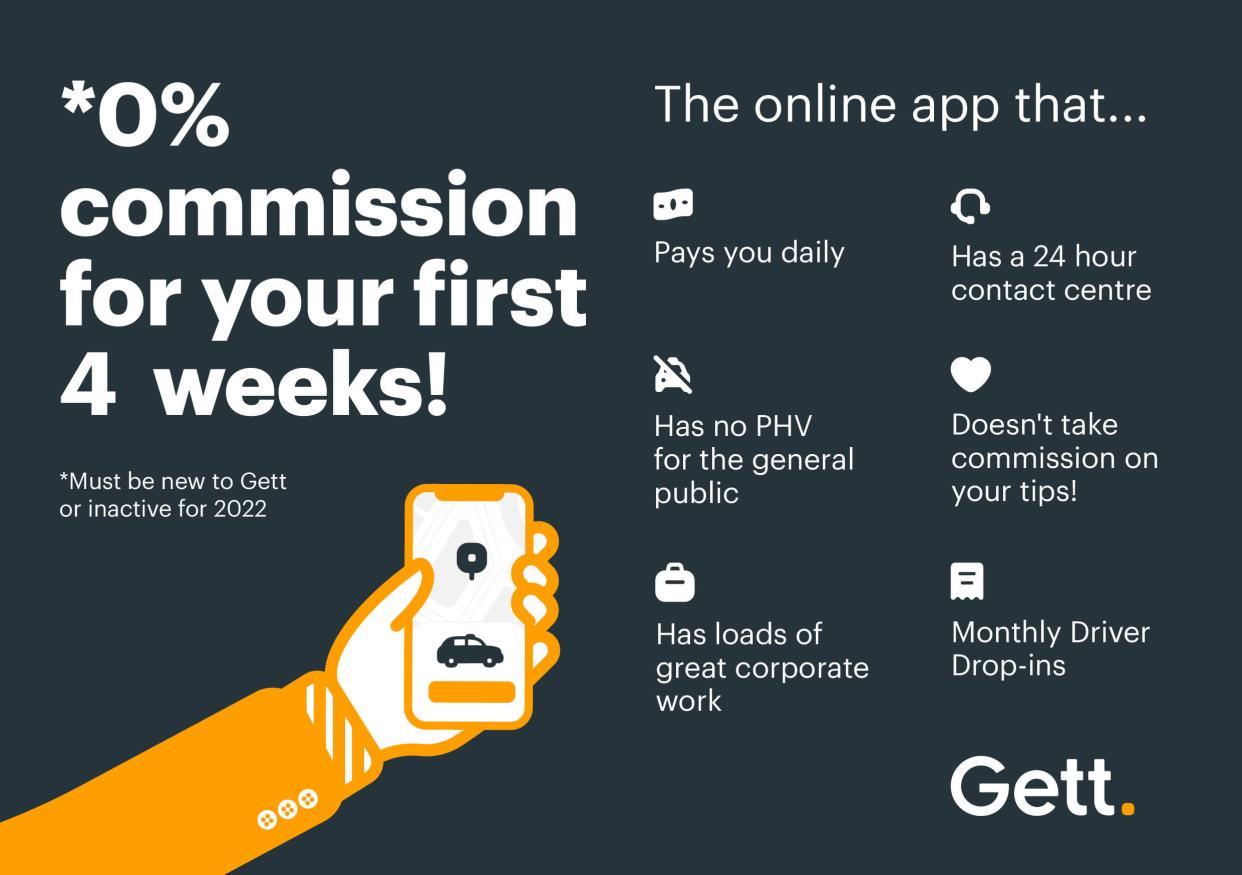

“
How does this affect the taxi trade? Well, no more than any other business. EXCEPT no more driver sheets or weekly books by hand. Remember your accountant must be able to produce a tax return every three months so dropping off a shoebox of receipts and printing out your bank statements will be a very expensive way of dealing with that. Your accountants’ fees could double or worse.”
How prepared are taxi drivers?
Honestly not very! Historically taxi drivers have shown they can adapt to technology and regulatory changes quickly, but very few have gone down the road of recording their tax digitally on a regular basis so far.
The latest delay gives even more opportunity for accountants and HMRC to get across the severity of changes that are forthcoming.
Quarterly accounts require drivers to be a little more organised and up to date with their accounts. There will be a lot of scratching of heads come April 2026, so best to get ahead of the game now.
ARTICLE BY: PERRY RICHARDSON TAXIPOINT FOUNDER AND EDITOR

HM Revenue and Customs (HMRC) have reviewed more than 120,000 taxi licences in England and Wales since new licensing tax checks were introduced in April 2022.

The new tax checks must be completed when people renew their licences to drive taxis, or drive and operate private hire vehicles, in England and Wales. The new mandatory checks arrived on 4 April 2022. They do not include any calculations and simply confirms whether a driver is registered for tax on their licensed taxi or private hire vehicle income.
HMRC told TaxiPoint that the ‘majority of feedback has been positive’. The number of tax codes obtained by the tax authority includes multiple licence holders, which means the number of checks completed does not represent the number of people holding a relevant licence.
straightforward, the online process should only take a few minutes and will only be required every few years. It forms part of a much wider range of checks that licensees are already required to carry out.
A HMRC spokesperson told TaxiPoint: “More than 120,000 tax checks have been completed since April 2022 and the majority of feedback has been positive. We’re continuing to engage with the taxi sector and local authorities.”
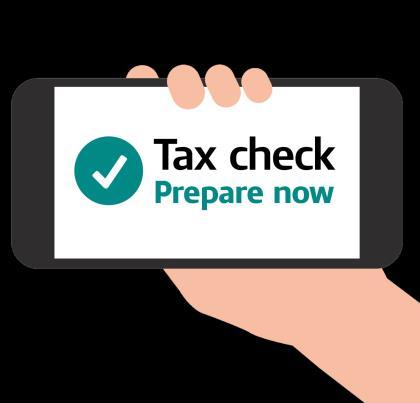
The policy was introduced with the aim of creating a level playing field for the compliant majority, so the majority who play by the rules won disadvantaged by the minority who do not.
HMRC are said to be aware of some people who are operating in the
JANUARY 2023 - Edition 45
HEADLINENEWSSTORY
hidden economy who may not be doing so deliberately, many so because they are unaware of or unsure about their tax obligations. Conditionality is therefore seen as an innovative, cost effective and simple way to tackle this part of the tax gap, preventing people entering the hidden economy.
What is a ‘tax check’?
A tax check confirms that you’re registered for tax, if necessary. It will ask questions about how you pay any tax that may be due on income you earn from your licensed trade.
You must carry out the tax check yourself. You cannot ask a tax agent or adviser to do this on your behalf.
“
After you complete the tax check you’ll be given a 9character code. This is your tax check code. You must give it to the licensing authority with your licence application they will not be able to process your application without it.
Tax check codes expire after 120 days, so if you make a licence application for another licence after that time, you’ll need to carry out a new tax check for it.
If you’re a partner making a licence application on behalf of a partnership you must complete a tax check for yourself. Your licensing authority will tell you if any other partners also need to complete a tax check.
Your licensing authority will need your tax check code before they can consider your licence application.
’
What if I’m applying for more than one licence?
You can use one tax check code for more than one licence application, as long as all the applications are for the same type of licence (for example, they are all for taxi driver licences but with different licensing authorities).
If you’re applying for different types of licence (for example, a private hire driver licence and a private hire vehicle operator licence) you must complete a tax check for each one.
Renewing Hackney Carriage driver and scrap metal dealer licences
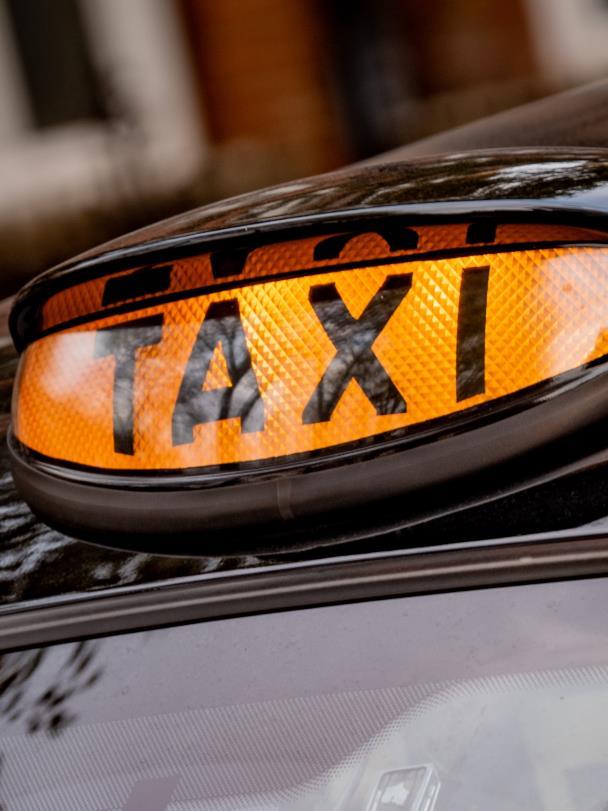
Your existing licence may be extended until a final decision whether to grant your licence application has been made (including a decision on appeal). However, if you do not give the licensing authority a valid tax check code your licence will expire on whichever of the following dates is the latest:
• 28 days after the licensing authority asked for your tax check code
• the date your licence expires.
JANUARY 2023 - Edition 45
More than 120,000 tax checks have been completed since April 2022 and the majority of feedback has been positive. We
re continuing to engage with the taxi sector and local authorities.
”
HMRC spokesperson
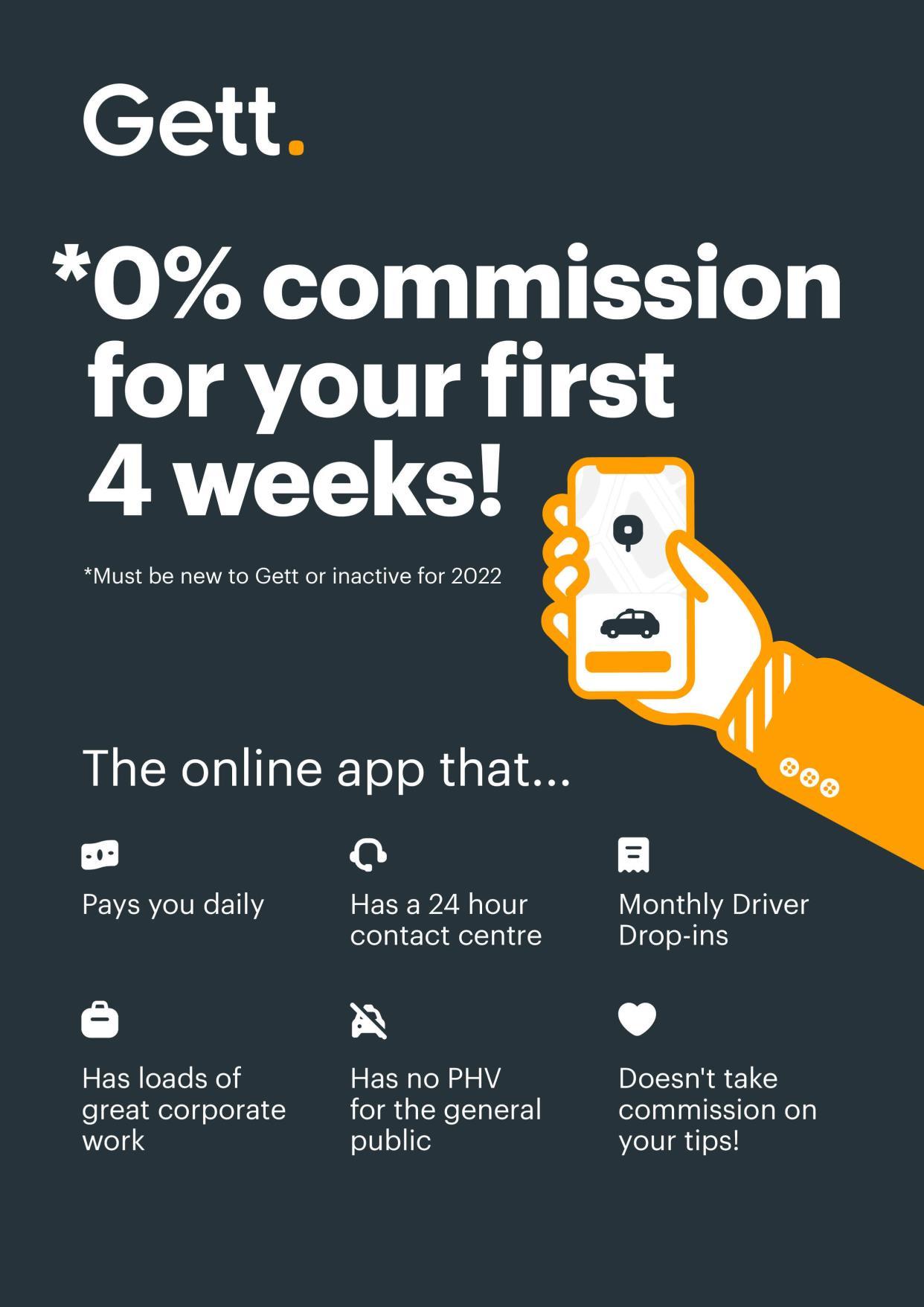
In a lot of UK cities and towns, the taxi industry has thankfully seen a strong resurgence in custom since coronavirus restrictions were dropped in 2022.
The positive signs of growth and demand for taxi services has however provided the opportunity for some cabbies to begin the unsavoury art of ‘brooming’ away work they don’t want.
Refusing job offers is seen as both unprofessional within the industry and frustrating for passengers looking for a taxi. It can also become a more serious problem if members of the public are left in vulnerable situations.
Most taxi drivers do not broom work and can expect a stern telling off from colleagues behind them on taxi ranks or on the street. Refusing less lucrative short rides when it’s your turn at the ‘point’ of a rank is simply a big no! Cabbies should always take the rough with the smooth and luck will inevitably balance itself out.
It’s not always short rides that are broomed. Some drivers don’t like driving too far outside city centres due to the ‘dead mileage’ or lack of fare when driving back in.
Last summer, police and licensing officers in Plymouth carried out a series of operations following a spike in complaints about drivers refusing long journeys from the city centre.
Plymouth taxi licensing officers carried out 17 test purchase rides of hackney carriages. Of those, two drivers refused to take the test purchasers home to Southway.
The drivers were interviewed under caution in relation to offences under the Town Police Clause Act 1847 for refusing journeys without reasonable excuse.
What is the law on brooming and what is seen as a ‘reasonable excuse’?
S.53 of the Town Police Clauses Act 1847 states:
“A driver of a hackney carriage standing at any of the stands for hackney carriages appointed by the commissioners, or in any street, who refuses or neglects, without reasonable excuse, to drive such carriage to any place within the prescribed distance, or the distance to be appointed by any byelaw of the commissioners, not exceeding the prescribed distance to which he is directed to drive by the person hiring or wishing to hire such carriage, shall for every such offence be liable to a penalty not exceeding level 2 on the standard scale.”
Stephen McCaffrey, a regulatory defence barrister specialising in taxi and PHV law, said: “A driver of a taxi (or hackney carriage) can only refuse to carry passengers within a controlled district if he has

14 JANUARY 2023 - Edition 45
TAXIPOINTFEATURE
reasonable excuse to do so. What constitutes “reasonable excuse” is ultimately a matter for a court of law to determine.
“What is certain however is, that refusing a fare based on the fact that the journey is too short will not pass the reasonable excuse test. Drivers of taxis are under a duty to provide local public transport services. To this end, every person who wishes to undertake a journey in a taxi (provided it is within the controlled distance) is entitled to do so and this right is protected in law.

“
Taxi drivers face the possibility of a criminal conviction, a fine and the possibility of losing their taxi licence if they are found guilty of an offence under section 53 as stated above.”
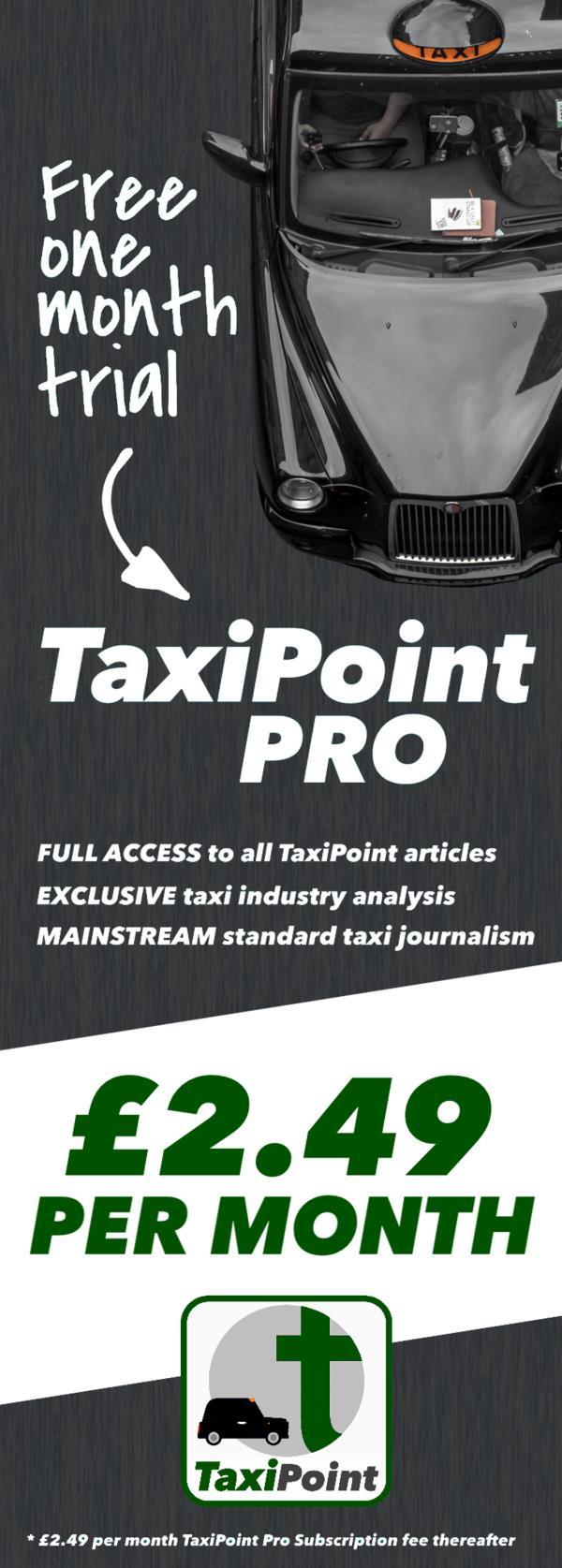
The effects of brooming
Whatever the reason, brooming is not welcomed. Whether it be refusing short, long or fares travelling in the ‘wrong direction’. Whether it be refusing ramp access to disabled passengers or turning away working dogs. It’s unacceptable.
Anthony Street, Licensed Taxi Drivers’ Association (LTDA) Executive, once spoke on the subject of brooming and said, ‘you’re not only letting yourself down but also giving a bad name to the entire trade’. He is spot on.
Any industry or brand is only as strong as its weakest link.
JANUARY 2023 - Edition 45
TAXIPOINTFEATURE
Taxi companies have overseen some drastic changes over the past decade. While tackling these changes is challenging, they also provide an opportunity for growth.
We recently talked with Kobi Eisenberg, cofounder and CEO of Autofleet. Kobi is said to be a thought leader at the heart of the mobility industry, in the taxi and ride hailing space, shaping fleet operations around the world. He is also passionate about new mobility services and about providing an unrivalled customer experience that goes hand in hand with a sustainable, efficient and optimised use of resources.
The company Kobi co-founded, Autofleet, offers an optimisation platform for fleets in general and specifically taxi operators worldwide. It applies advanced machine learning algorithms to help operate taxi services at peak productivityimproving ETAs, driver availability and the number of completed rides, reducing deadhead mileage and more.


I believe in the taxi industry. And I believe in the critical role taxi operators will continue to have in the value chain of mobility despite the significant challenges this past decade. But in order to grow and prosper, it is essential for minicab, PHV and taxi companies to leverage technology to automate and optimise their fleet.
Take for example automated dispatching. Many operators today dispatch to the “closest” driver based on air distance - as the crow flies. The reality however is that the actual travel time could be significantly different when considering the actual route, live traffic conditions and the direction the vehicle is moving. These differences result in significantly higher ETAs, higher deadhead miles and overall reduced fleet efficiency. Often drivers don’t trust the dispatching decisions and take manual control that doesn’t scale. Autofleet’s Optimised Dispatching considers all of these data points in real time, across all active vehicles in the fleet, including actual route, live traffic conditions, roadblocks, vehicle driving direction, capacity constraints etc.
Once we deploy our solution, we often see an immediate improvement in the core KPIs of the operation including an improved customer experience and increased fleet efficiency. It also frees up the dispatchers from tedious tasks to deal with strategic planning and issues that require human intelligence. We’ve combined this with machine-learning algorithms for demand prediction that accurately forecast potential demand within a 2-block radius. The prediction then generates personalised placement recommendations for drivers. We have seen an over 35% increase in completed rides through these recommendations alone. This adds up to create higher overall utilisation rates, less deadhead miles, and happier drivers that make more money.
INDUSTRYQ&A
Q: How can Autofleet’s technology help taxi drivers and operators become more efficient?
Emailcontact@taxi-point.co.uk AREYOUOURNEXTQ&APARTICIPANT?
The data clearly shows that the most common reason for customers cancelling the ride is high ETA, second only to constantly updating and unpredictable ETAs that change enroute to the client. Therefore lowering cancellation rates goes hand in hand with lowering ETAs. This is possible through Optimised Dispatching and Placement Recommendation in addition to optimising the actual route for the driver.

Optimised routing calculates the ideal route across multiple parameters incorporating live traffic conditions, vehicle location data, and course heading that results in not just lower ETAs but also ETAs that are more consistent and predictable. We constantly monitor the difference between ETA and ATA (Actual time of Arrival) and usually see a difference of less than a minute.
But, any solution is only as good as its ability to run smoothly. Our fleet customers trust us and we take that trust very seriously, especially since dispatching is at the core of the company’s business. Which is why at Autofleet we provide more than 99.9% uptime, including 24/7 support integrated directly into the product. This means customers can chat with us and our team will respond in less than a minute - that’s our commitment!
Autofleet has built a platform with the most advanced optimization capabilities, powered by machine learning models, that serves complicated operational needs and drives measurable business outcomes including more completed rides and better customer satisfaction scores.


We also feel that no one understands their market better than the taxi operators themselves. Therefore we offer operators the ability to customise their customer experience easily. For example, when we designed our passenger app, we wanted to offer more than just a logo and colour change on an app. This is why we provide our clients an open source passenger app that allows them to retain control and IP ownership over how they engage with their customers. Finally, we also support the concept of a Universal Fleet - utilising fleet assets to generate more business, serving any source of demand. This can include delivery services, NHS rides, schools and others all on the same fleet.
If done right, pooling offers a cheaper ride for passengers and at the same time higher income for the drivers and operators - win win. However, one must be
INDUSTRYQ&A
Q: Booking cancellations are frustrating for passengers, cabbies and operators. How can Autofleet help tackle this?
Q: What makes Autofleet uniquely different from other dispatch platforms on the market?
Q: Now that coronavirus restrictions have largely disappeared in the UK, do you see taxi pooling making a resurgence?
Imagecredit:AUTOFLEET
Tablecredit:AUTOFLEET
“

This is not a one size fits all solution, and is tailor made for each operation and market. After all, the demand for taxis in central London does not behave the same as the demand in suburban Manchester, for instance.”
However, taxi firms must ensure they are not letting the customer and driver experience slip, and that the number of rides completed each day does not fall due to the downtime incurred by the charging time. With the right planning tools, taxi operators can predict the effect of switching to EVs, and work out any issues ahead of time. Simulations in particular, can help better understand the needs of each fleet, taking into account both range and charging strategy, and help operators plan their electrification strategy at much lower risk.
However, such a critical system should really be best-in -class to ensure the business operates as well as it can. You need a state-of-the-art dispatching solution, backed by a reliable partner that supports you before, during and after deployment, with immediate response time and a deep commitment to maximise results.
To mitigate the risks involved in introducing changes to a live operation and in order to fully realise the potential of the changeover, we provide an accurate road map based on simulations, using real fleet data. Our team of experts build a personalised plan with the team in house to facilitate the integration process and ensure the success of any new deployment.
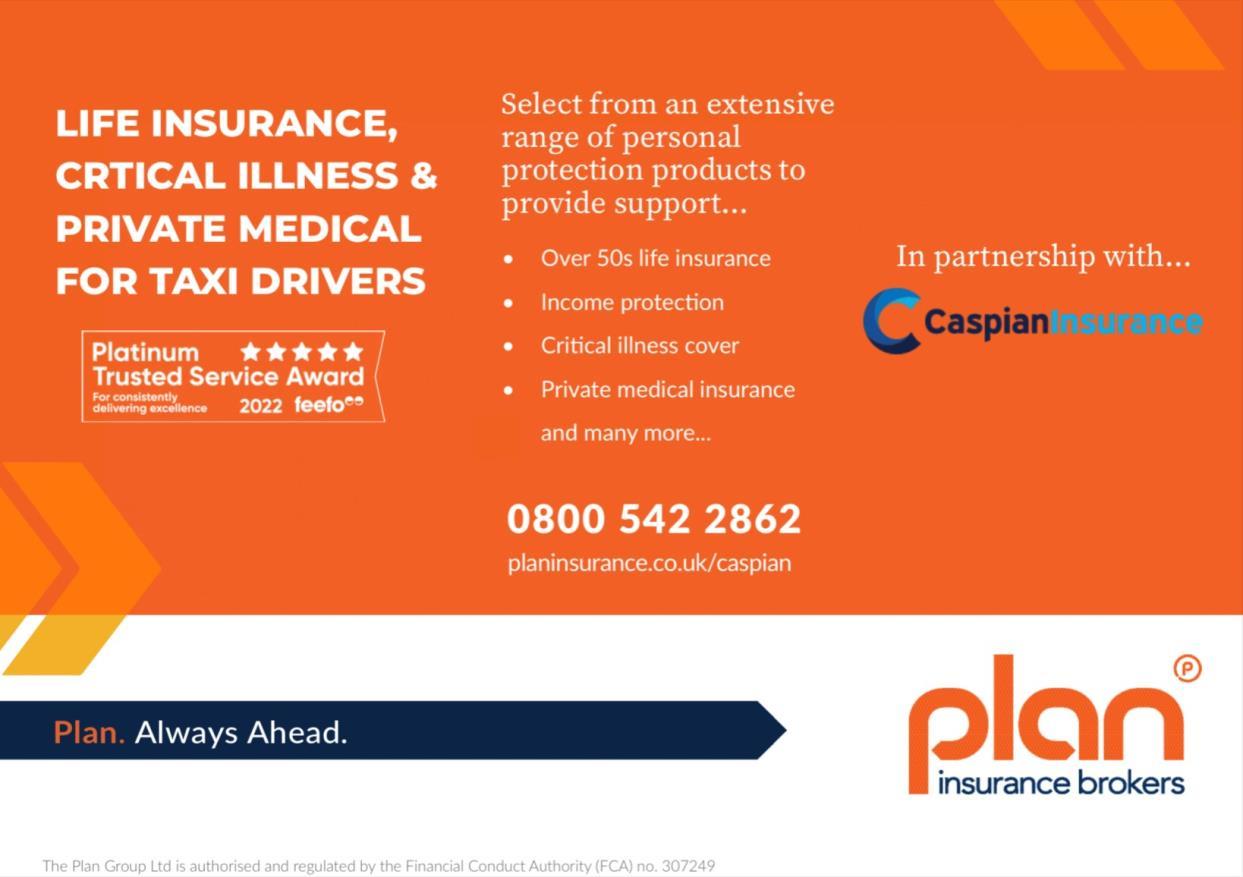
I can definitely understand the concerns surrounding the transition to a new dispatching solution, and they are justified. Dispatching is at the core of any taxi business, and without it, things can grind to a halt.
I started this interview saying that I believe in the taxi industry, and I really do. Given the right tools, private hire, minicabs and taxi companies are well positioned to embrace and gain from new mobility opportunities that are unfolding now and in the near future.
INDUSTRYQ&A
Q: Some taxi operators are already using a dispatching solution. How can they assess the value of advanced optimization for their business?
There’s an ongoing debate over whether there are too few or too many taxi and private hire vehicle (PHV) drivers in the industry at the moment.

Operators will argue that there are not enough, whilst the remaining cabbies will say demand is sustainable as it currently is.
Regardless of where you stand on this argument, there’s little debate that the industry is struggling to recruit new, and in particular younger, drivers to sustain current numbers.
But why is the industry stalling in its recruitment at a time of mostly high demand?
TaxiPoint asked the industry for their thoughts on why interest was low
and received nearly 400 messages back from those in the UK industry.
Many people supported Alan Ward’s theory. Ward said: “That's easy to answer, too many overheads and having to jump through hoops for your local licencing authority. Plus the competition from out of area drivers since deregulation.”
Cabbie Alan Wright suggested the current high vehicle and running
TAXIPOINTFEATURE
TAXIPOINTFEATURE
costs are the main reason for poor recruitment. Wright said: “Could it be the price of a new Cab? Or maybe the extortionate price of diesel, or could it be all the road closures?”
There were several other reasons mentioned which were more prevalent in certain regions. Low pay caused by rock-bottom tariffs set by local authorities were failing to attract drivers in some areas. Others said working from home and a lack of people going out in some towns and cities were impacting demand.
The length of training was mentioned by some in the industry. Shamim Miah was one saying: “There are many reasons, but I believe it’s the cost and time it takes to get a licence of entry to the industry.”
The London Knowledge can take an average three years to complete. In a changing world that demands everything instantly, less people are willing to work for the ‘Badge’, despite the rewards that await them. There’s also a concern about the sheer volume of private hire vehicle (PHV) drivers operating in areas looking for Hackney Carriage applicants. In London there are nearly 100,000 PHV drivers licensed by Transport for London (TfL). Those looking in at the black cab trade perceive the market to be saturated by ride-hail options. This is a similar story for many of the UK’s biggest cities. Nigel Webb made an interesting comment around the dwindling status of being a taxi driver.
He said:
“Younger drivers don't want taxi driving jobs these days, they think it's beneath them.”

Another cabbie, Kevin Read, supported that thought: “Youngsters don't want to work the hours they want a cosy office job in front of a computer. Jobs like taxi driving are more a way of life than an occupation.”
Unsociable and long hours are also said to be putting off youngsters. Working busier Friday nights and weekends puts an instant stop to thinking any further about a career in the industry.
Others say red tape and a multitude of new courses that heap more pressure and costs on cabbies is making the job less appealing. A cabbie said: “Bizarre rules regarding WAV vehicles and a growing list of "courses" to protect the public are being heaped upon drivers as councils now see us as social workers, therapists, guidance councillors and carers.
“It isn't our job and an hour-long course does not qualify us.”
Finally, there’s the threat of autonomous taxis to the UK taxi industry. David Dore said: “Younger folks know that driverless cars are coming.
“Why join an industry that won't be around in their lifetime? Better spending the years between now and then in an industry with a future.
“
Me, I’m ambivalent about driverless cars. Likely I will be dead by then and if not the challenge is have your own driverless cars!”
Many authorities will be hoping supply and demand will eventually balance itself out. However, it’s not going to be as simple as that given the hoops to jump through and the financial risks drivers are now exposed to when it comes to overheads.
A rethink is needed from top to bottom.
When building a successful taxi business and maintaining growth, business owners must be aware of the growing influence of technology, adaptability and innovation. 2022 was a reassuring year for the global taxi booking industry, especially compared to 2020 and 2021. The industry has been steadily growing since January 2021. The recent Taxi Butler Industry Report highlights that the taxi industry saw 242% growth in H1 2022 vs H1 2021. May 2022 saw over 13% more taxi bookings than in May 2019 (prepandemic). North America and Oceania are said to have experienced significant growth in taxi bookings between February and March 2022.
With new and innovative technology trends leading the current global taxi industry, technological progress has completely changed the face of the industry and how people use private taxi services worldwide. This article highlights some key technologies to watch out for in 2023 that will revolutionise the taxi industry and support growth.
The Influence of IoT (Internet of Things)
The Influence of IoT on the taxi industry is significant; from road safety issues to monitoring fleet management systems, IoT has been an end-toend solution provider. Other improvements in fleet
management, like maintenance cost, fuel consumption, and quick accident response seem possible with IoT. Fleet owners now embed highquality sensors in their vehicles to gather real-time data. They can track the vehicle's location, save fuel expenditure and check driver's behaviour on route adherence, braking practices, speed regulations, and so on. With AI, we can foresee the taxi industry doing amazing things like checking fuel capacity, tyre pressure, and many more in real-time. The figures for the years 2019-2024 state that the market of the taxi industry is relied upon to enlist 9.22% CAGR.

taxi industry
Taxi QR code bookers are the next-generation way for taxi fleets to generate and automate bookings from anywhere inside their local venues.
22 GUESTWRITER
The emergence of QR codes across the
LAURENCEDOCHERTY,HEADOFSALESATTAXIBUTLER
Imagine this: a hotel guest is getting ready to go out for dinner. They want a simple and safe way of getting to their destination. They see a sticker on the door with a taxi-hailing QR code as they leave their hotel room. They scan the code and book a taxi from the hotel with a local and trusted taxi company. They track their taxi from the comfort of the lobby until it arrives. Working closely with taxi fleets, Taxi Butler developed their QR code taxi booking technology, testing it with real fleets, venues and passengers. Delivering endless possibilities for taxi fleets across the globe, the QR taxi booker lets taxi fleets generate even more automated bookings, increase their brand visibility and create exclusivity with local venues. QR has also become a predominant payment process for taxis worldwide. Passengers in the UK can scan QR codes on a driver's badge, reassuring passengers that their driver is legally compliant and has a valid licence. In the UK, QR technology for the taxi industry hit its peak glory during COVID. Each vehicle had a unique QR code that passengers scanned, and as part of their contact tracing initiatives, these QR codes synced with the NHS app and helped NHS track and trace get in touch when someone was exposed.
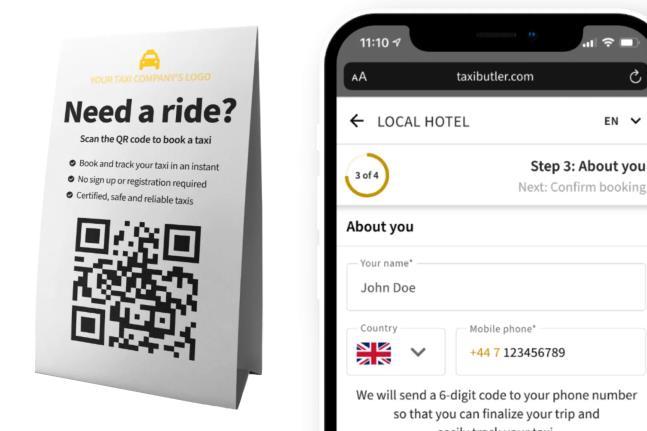
Selecting the best taxi dispatch system
When was the last time you called the taxi company to book a taxi? Or walked through the street, hailing for a cab. Or saw telephone operators assigning jobs to drivers using two-way radios? Technology continues to enhance the overall travelling experience. Modern dispatch software is far more sophisticated and allows better management in customer bookings, scheduling, routing and tracking, driver comms etc. On top of the dispatch systems, most taxi businesses are adopting technological advances like the purpose -built and innovative one-click simple taxi booking device to support the growth of their taxi business. This technology upgrade
significantly increases overall automation, the total amount of bookings, and the taxi drivers' work efficiency, allowing them to quickly identify where the work is available, reducing wasted fuel and time.
Automated customer support
Customer happiness is critical to a company's long-term success. Recent statistics show that 59% of consumers care more about customer experience post-COVID-19 than before. Besides giving discounts and other marketing giveaways, taxi companies now embrace call centre automation, such as Flip, to give their customers the special attention they deserve. This automated phone system takes bookings and automatically passes them to the dispatch system without human interaction. In most cases, customers automate half their calls on just day one, improving the total output and customer satisfaction and growing the taxi business. Anyone who calls anytime will immediately be greeted. Typically taxi firms are expected to attend 40% of total calls via IVR, which might go up to 70% in some cases. This technology helps customers complete simple requests and smoothly pass more complex situations to the team.
Progression of commuting vehicles
Comfortable and luxurious travel will increase over the next decade. From electric cars and hybrid vehicles to driverless cars, the industry is witnessing the most significant changes in the methods of commuting passengers.
JANUARY 2023 - Edition 45 GUESTWRITER
Electric vehicles are becoming increasingly popular as customers demand environmentally-clean and sustainable transportation services. It will be necessary for taxi booking companies to expand their fleet with electric or hybrid vehicles. Electrification for ride-sharing will help reduce pollution, lessen dependency on fossil fuels, and decrease vehicle maintenance costs. On top of that, it will help keep costs down for riders. Bloomberg NEF's findings estimate a rise in plug-in vehicles from 6.6 million in 2021 to 20.6 million in 2025. Moreover, 23% of new passenger vehicle sales are predicted globally in 2025.
In June 2022, self-driving vehicles became a hot topic of debate. California regulators gave a robotic taxi service the green light to begin charging passengers for driverless rides in San Francisco. Statistics show that most ride-sharing drivers work part-time, which means they already have another source of income. In Market Research Future (MRFR) research, Robo-Taxi Market is estimated to Touch USD 39.81 Billion by 2030 at a CAGR of 53.8%.

While the upgrading of autonomous vehicles continues, experts predict that in 2022, there will be approximately 54 million new connected vehicles on the road. These connected cars will soon be able to communicate with each other and infrastructure like traffic lights and stop signs. This could be great for safety, but it will also lead to a decrease in privacy.
After a challenging past few years, the demand for the global taxi industry is increasing steadily. With the international travel sector growing exponentially and taxis continuing to play an essential role in modern public transit, the taxi booking industry is more robust than ever to meet the growing demands. Despite numerous obstacles, the industry in 2022 showed promising development. As we emerge from the pandemic, 2023 is the year the global taxi booking industry is looking forward to shaping its future.
24 GUESTWRITER

EXPERTFEATURE
 ARTICLE BY:
ARTICLE BY:
The past couple of years has seen the transport landscape change completely. Successive lockdowns, the rise of hybrid working, and high-street closures has led to a significant decline in public transport usage.
Government stats show that despite increases, public transport passenger numbers are still well below preCovid levels.
As of December 2022, passenger numbers for rail and bus stand at just 86% and 81% of those recorded in the same period pre-pandemic. Public perception of public transport has clearly taken a hit. But the story is a little different for the taxi and private hire (PH) trade.
Increase in demand
Research from Taxi Butler found a 557% increase in demand in Q1 2022 compared to Q1 2021. The same research found that this wasn’t just a spike due to the
ending of the pandemic. It found demand was 13% higher in 2022 than the equivalent period in 2019. TaxiPoint recently reported that the majority of the British public (54%) had no intention of reducing how often they took trips by hire vehicle over the festive season.
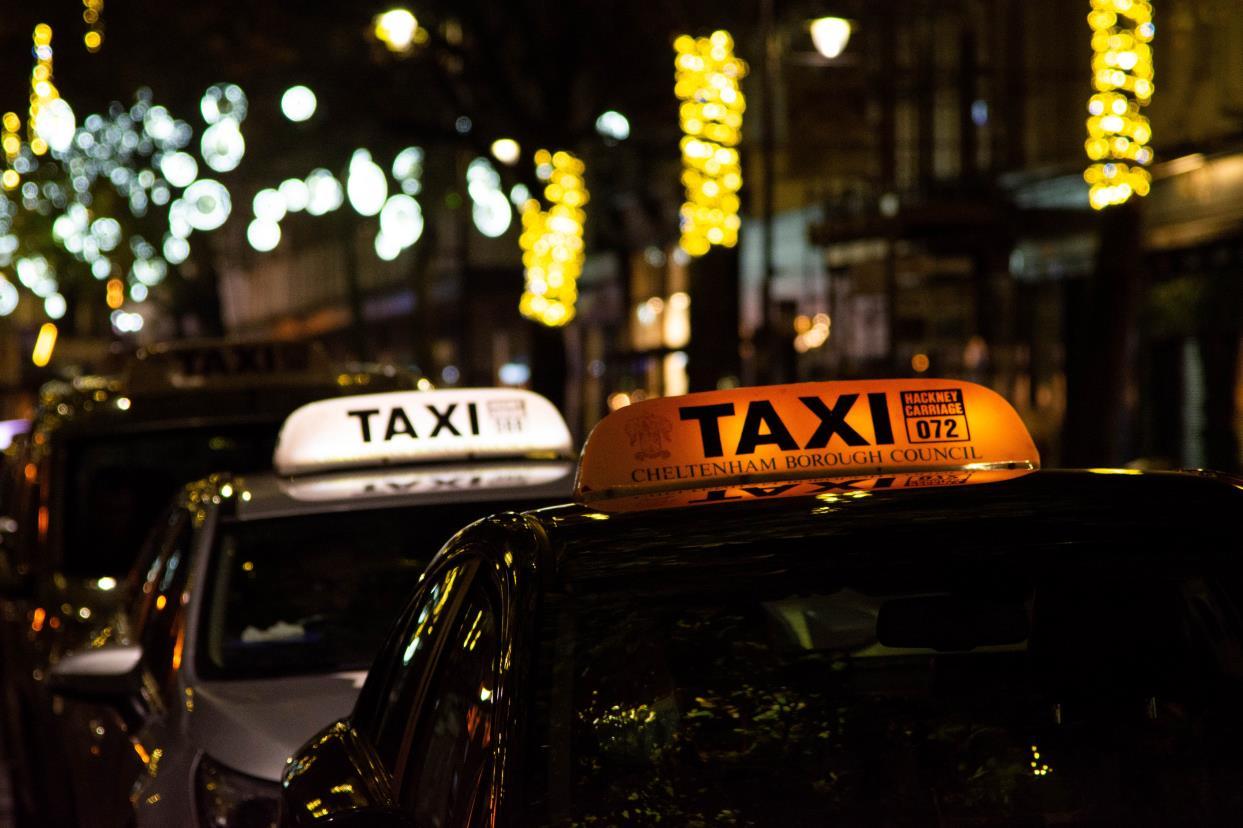
These services are an essential part of the UK’s transport infrastructure. This was never clearer than during the pandemic.
Local Transport Heroes
Throughout the pandemic, taxi and PH drivers were a vital part of local transport networks. Transporting key workers and vulnerable people while public transport services were non-existent.
Many drivers and operators also ran voluntary services delivering medical supplies and groceries to individuals who were self-isolating.
26 JANUARY 2023 - Edition 45
GOTAVIEWONTHETRADE?Emailcontact@taxi-point.co.uk
EXPERTFEATURE
The Government recently reiterated that local authorities need to consider taxi and PH services as part of their local transport planning. But are taxis and PH services classed as public transport?

What is public transport?
There is no universal definition of public transport. In the broadest sense, public transport meets the following characteristics:
• Managed on a schedule/fixed timetable
• Operated on established routes
• Charge a posted fee for each trip.
Taxis and PH services clearly don’t meet these criteria, but does that mean they aren’t a form of public transport?
Taxis and PH as public transport
The International Road Transport Union have lobbied for years for taxis and PH services to be classed as public transport. They argue that although they are private vehicles for the duration of a booking, they are integral to multimodal public transport chains.

No other form of public transport can completely fulfil everyone’s transport needs. This lack of flexibility is why many opt to use a private car as their main form of transport. Incorporating taxis and PH into local transport planning can ensure traditional public transport can meet the wide-ranging needs of the public. It can also help local authorities meet climate targets.
Aside from this, for many individuals, taxis and PH services are the only publicly accessible form of transport available to them. This is particularly true in rural areas or for people with disabilities. It’s clear that there is still great demand for taxi and PH services. After a disastrous couple of years for the industry, it looks like the industry is going to bounce back strong.
TaxiPlus was created for the taxi licensing industry. We realised early that drivers and licensing authorities have enough on their plates without having to worry about background checks. We offer a complete screening solution including DBS and DVLA checks, e-Knowledge Tests and Safeguarding Training.

27 JANUARY 2023 - Edition 45
TAXIPOINTFUELREPORT
Fuel prices for both petrol and diesel are expected to continue their sharp fall in the New Year due to a falling wholesale market and retailers beginning to pass on the fairer prices. 2022 will be remembered for all the wrong reasons by cabbies and other motorists when it comes to pump price volatility.

DIESEL
At the beginning of December, TaxiPoint reported a black pump fuel price standing at a high £1.86 per litre. Thankfully for diesel cab owners, that price dropped rapidly over December. Prices sit at £1.71 per litre moving into 2023 and represents a 15p drop.
This price ‘should fall sharply’ again according to RAC sources.
PETROL
Throughout December both diesel and petrol prices tumbled, but a price gap between a litre of diesel and petrol remains. Diesel currently sits around 21p more expensive per a litre purchased.
Petrol prices currently sit at £1.51per litre, which represents a 11p drop in the month of December.
That downward trend in price is likely to continue into the New Year too.
ELECTRIC
Not much change this month when it comes to electric prices. Home charging makes EVs better value than petrol or diesel cabs, but the astonishingly high public chargers will make drivers think about fuel sources if they have the choice like in a LEVC TX.
28 JANUARY 2023 - Edition 45
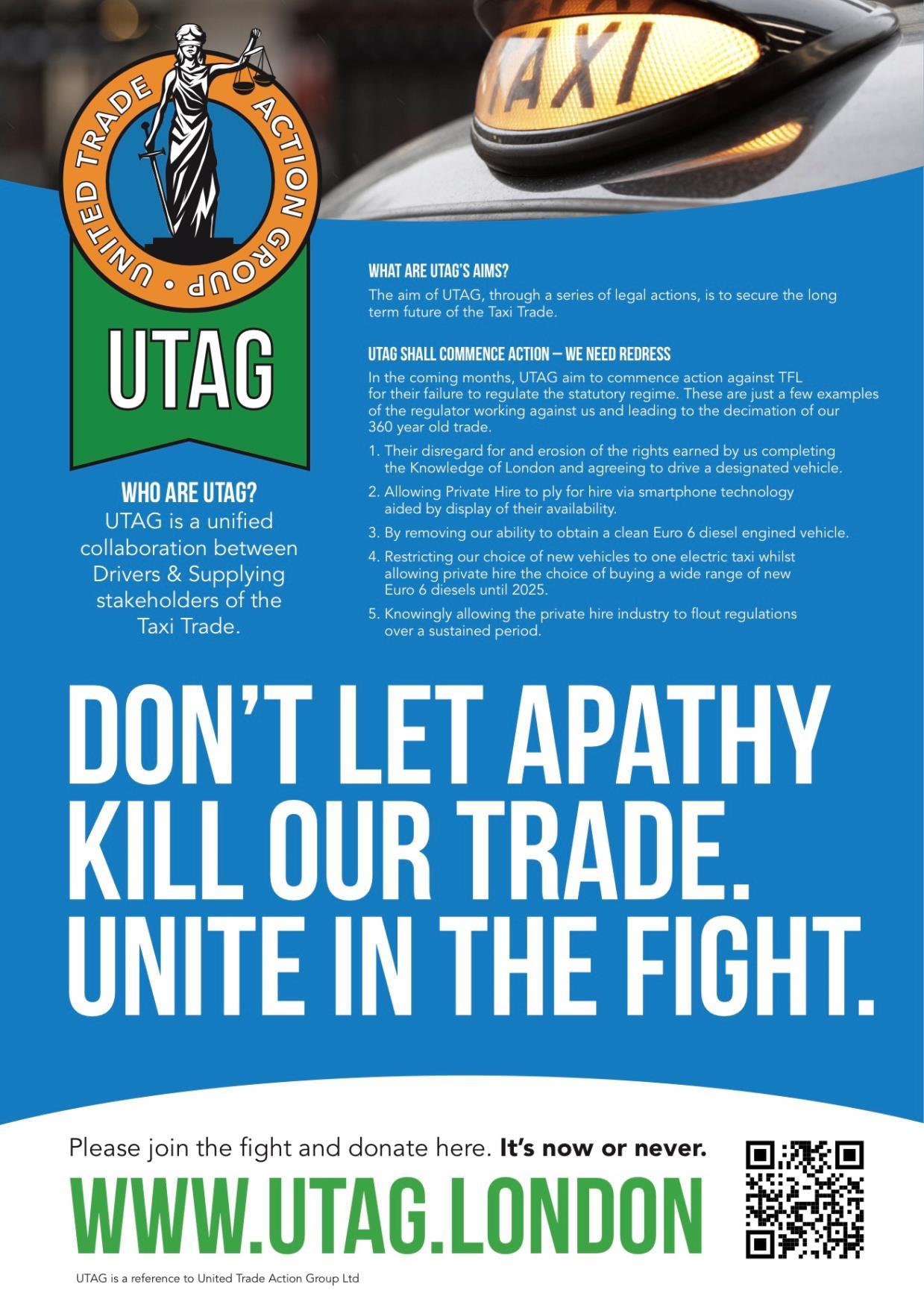
City of Wolverhampton Council (CWC) licensing chiefs have warned there is a risk that their licensing service could over-expand, due to the ‘impossible’ job of judging when demand for new licences will plateau after a record breaking year.
Since demand for minicab services bounced back after the final coronavirus restrictions were lifted, the council have revealed that they are on course to expand their pool of licensed drivers by an astonishing 10,000 in 2022-23.
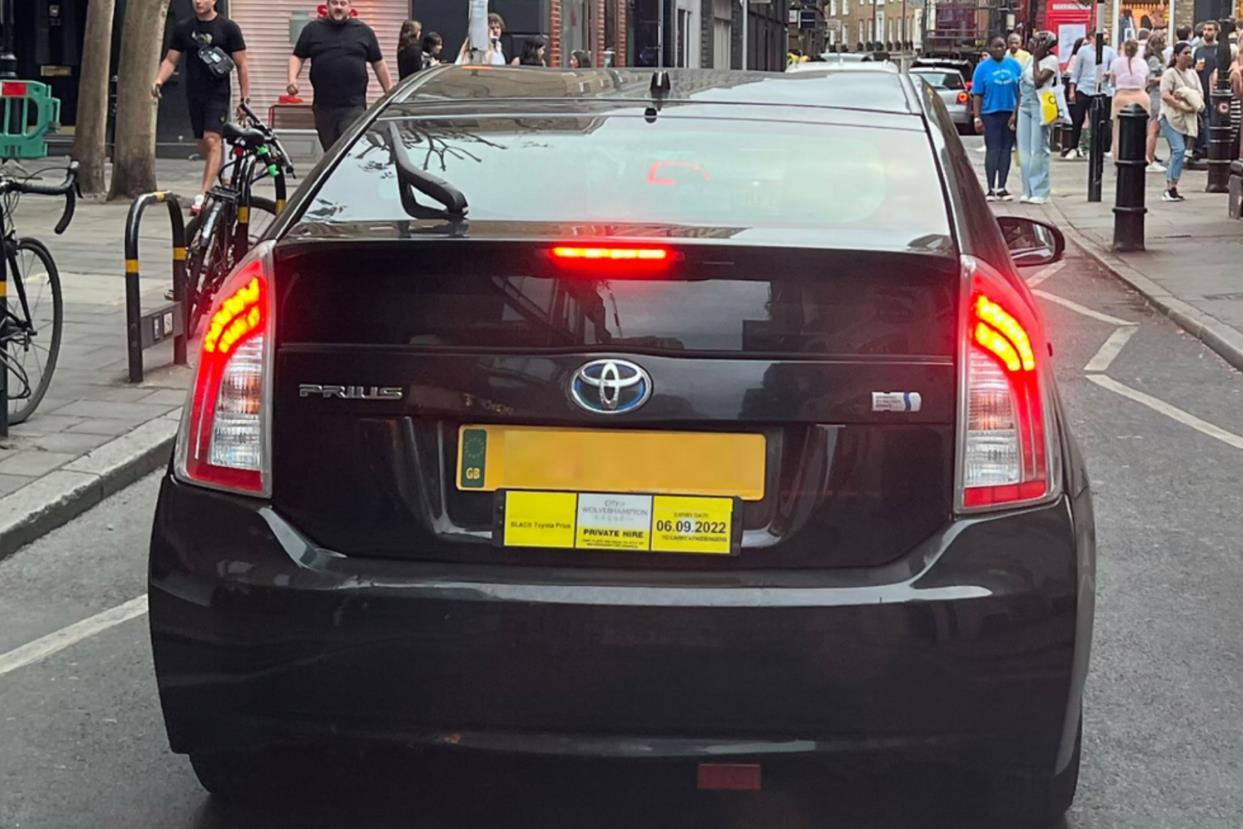
The comments form part of a CWC update on Private Hire Vehicle (PHV) licensing growth which will be discussed at a Regulatory Committee meeting on 11 January.
It has been recommended that the council continues its ongoing approach to meeting the demand for private hire driver licences despite the risks attached to the growth.
According to the report, excluding London, the largest increase on record is 5,051 drivers for 201819, which was Wolverhampton. This is likely to be broken by Wolverhampton again this financial year; as of 15 December 2022, Wolverhampton has 26,745 drivers, an increase of 7,428.
Assuming numbers of drivers have increased to prepandemic levels, the Council’s share of PHV drivers (excluding London) is currently 21.6%, up from 17% in 2021-22. However, given that there are three more months, it is likely that the increase will approach 10,000, which is double the previous largest increase in a single year.
Wolverhampton officials have blamed other local authorities for pushing out of area applicants their way due to higher licensing fees and slower processing times.
Greg Bickerdike, City of Wolverhampton Council Licensing Manager, said in the report (1): “Because of the shortage of drivers, Wolverhampton has been inundated with applications from across the country, in part due to slow processing times and high fees in their home authority. This has created a backlog of applications.
“
The service is struggling to meet demand. As of 15 December 2022, there are 2,634 applications in the queue, which is approximately a two month wait. There are currently 1,924 applications which have been processed but are awaiting information from the applicant. There are 927 drivers who are awaiting a hearing to determine their application.
30 JANUARY 2023 - Edition 45
UKTAXINEWS Imagecredit:HMRC GOTNEWS?Emailcontact@taxi-point.co.uk
”
The report added: “Excluding London, Wolverhampton’s projected growth in drivers this financial year is greater than the growth of all other English licensing authorities combined over any of the last five years.
“
The Council must cautiously grow the service to meet demand and compliance needs, by balancing the risks of overemployment with poor customer service by a short-staffed service.
“
The Council has recruited 20 employees into the service this year, to meet this demand. More licensees also leads to more compliance work and more licence reviews, which requires appropriately trained decision makers.
“
There is a risk that the service will over-expand, as it is impossible to judge when the demand for new licences will plateau.

“
Due to the cost-of-living crisis, there is likely to be an increase in applications from those who are concerned about job security and wish to obtain a licence as a hedge against redundancy.
“
There is currently a queue of 5,000 for the driver training programme. This is approximately five months work, including the current two-month backlog. However, there is a risk that as the backlog reduces, demand increases proportionally due to the short waiting times for processing. Once the backlog is cleared, correct and complete applications will be issued for collection the next working day.
“
To mitigate the risk of over recruitment and potential redundancies, the Council will continue to use agency resource to eliminate the backlog of applications. Agency resources are trained to the same high standard as full time employees, no short cuts are taken. Public safety remains of paramount importance.”

JANUARY 2023 - Edition 45
UKTAXINEWS
Two years of inaction by the Minister for Infrastructure and the Department for Infrastructure (DFI) has forced over 1,800 licensed taxis off Northern Ireland’S roads say industry representatives.
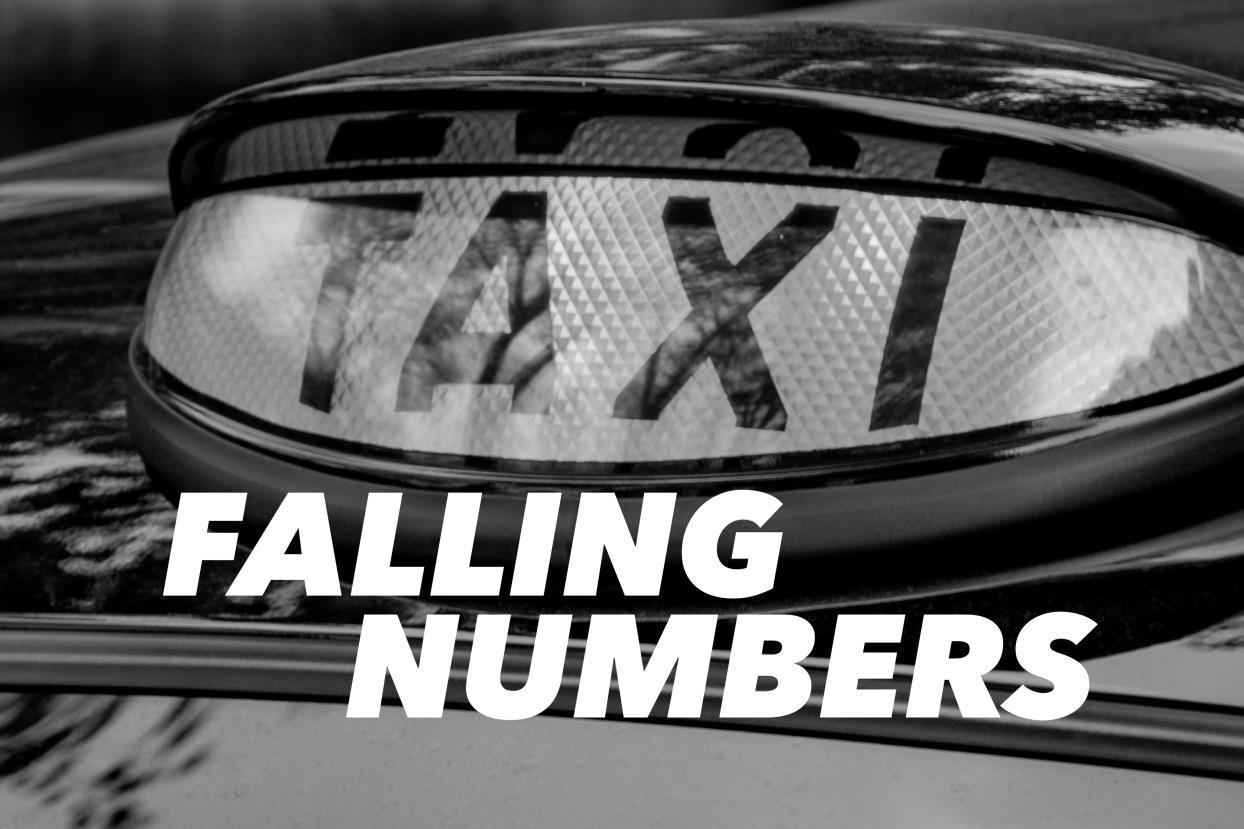
Back in December 2020, representatives from the Northern Ireland Licensed Taxi Operators Association (LTOA) taxi industry presented to the Committee for Infrastructure seeking support for the sector, and changes to the way it is regulated.
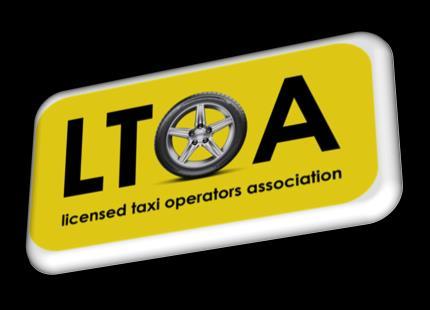
As part of the presentation, the LTOA warned: “If our efforts for support are unsuccessful, what happens next? Well as we have already said some depots have already closed, others are close (to closing) and some have delayed further redundancies in the hope that
things will improve but now there is little positivity in the sector for the future.
“Services will be curtailed, sponsorship in local communities cut, charitable activity culled. Fewer taxis to welcome tourists when the market returns, more pressure on our health service to provide secondary services. Who provides transport for wheelchair users and passengers with sight difficulties and guide dogs? Who services rural areas that other transport operators cannot? One commentator on social media even went as far as to suggest an increase in drink driving when there’s no one to get you home after the pub.
32 JANUARY 2023 - Edition 45
UKTAXINEWS Imagecredit:HMRC GOTNEWS?Emailcontact@taxi-point.co.uk
LTOA spokesperson

UKTAXINEWS
“There are simply now too few taxis and taxi drivers to meet passenger demand across Northern Ireland especially during anti-social hours at evenings and weekends, and the industry is finding it difficult to recruit more because of the licence testing regime despite high levels of interest…”
A Transport for London (TfL) age limit extension offered to owners of wheelchair accessible minicabs would ‘not be appropriate’ to black taxis says the Mayor of London. Taxi representatives in London have reacted angrily since the ‘case-by-case’ Wheelchair Accessible Vehicles (WAVs) exemptions made to individuals working in the
Private Hire Vehicle (PHV) sector was announced in October 2022.
Representatives from the United Cabbies Group (UCG) showed immediate ‘concerns’ that minicab drivers offering WAV services were to be granted EXTENDED use of current diesel and petrol vehicles, despite the taxi industry being forced to purchase more expensive WAVs since January 2018.
Taxi drivers in the capital have been unable to licence new diesel WAVs since age limits were slashed. That change is widely regarded as one of the main reasons that has pushed the black cab fleet to shrink in size.
In April 2018 the taxi fleet stood at 21,026. Fast forward 3 years to April 2021 and that figure slumped to just 13,461 WAV black cabs in the capital.
Despite the huge demise of WAVs offered to Londoners, no concessions were offered to the industry by TfL or the Mayor of London.
Cardiff taxi drivers descended on the Welsh capital in the first week of January to continue their fight against Cardiff Council taxi industry fleet plans.
Before Christmas drivers swamped County Hall to protest against the plans to remove the taxi vehicle cap for electric and Euro 6 cabs.
Unite Wales claim the move will make it even harder for drivers with older vehicles currently licensed to make a living and invest in new greener taxis.
Speaking before Christmas Alan McCarty, Unite Union Officer, said: “There are already plans to make all vehicles electric in a few years.
“How are poorer drivers expected to have funds to purchase these in an already oversaturated market?
“Giving new licenses only to those already financially capable of owning Tesla makes it worse, Cardiff Council.”
Sadiq Khan, Mayor of London, said: “Transport for London (TfL) has recently taken a decision, further to applications, for certain specialist wheelchair accessible private hire vehicles (PHVs) to be exempt from the licensing requirement to be ZEC.
“
This is not a blanket exemption for all wheelchair accessible PHVs. Instead, applications are assessed on a case-by-case basis, and the exemption is reserved for specialist vehicles required by those who provide a specialist service where alternative vehicles which are ZEC compliant are not currently available or appropriate.
“
A similar exemption for taxis would not be appropriate as all of London's taxis are wheelchair accessible and provide a wide range of other accessibility features to support passengers with disabilities.”
34 JANUARY 2023 - Edition 45 UKREGIONALNEWS
Taxi fares are set to rise again in South Gloucestershire, this time by 10%.
High inflation and rising costs has prompted the latest rise in the region. Taxi drivers were handed a 8.57% increase in April 2022, but costs since then have continued to rise. Councillors are set to discuss the latest taxi tariff proposals and decide whether to accept the advice presented to them. If given the green light to proceed, the tariff would then go out to a public consultation.

Wealden District Council are the latest licensing authority to have started a public consultation on whether installing CCTV in Hackney carriages and private hire vehicles (PHV) would have a positive or adverse effect on the safety of passengers and users, including children and vulnerable adults. Making the use of CCTV in vehicles mandatory may discourage people that are intent on causing harm from applying to have a taxi licence. Those that hold a licence may also change their behaviour say Wealden District Council (WDC).

JANUARY 2023 - Edition 45 UKREGIONALNEWS
LEVC (London Electric Vehicle Company) has begun a new chapter, setting its brand direction for the coming decade and beyond, with a new strategy to become a leading zero-carbon mobility technology company.

Building on their heritage in purpose-built vehiclesLEVC has manufactured the iconic London taxi for more than 70 years - the company’s new strategy will see it grow beyond manufacturing the world’s most advanced taxi, the TX. LEVC has announced its commitment to deliver
smart, green, safe and accessible mobility solutions to more people than ever before.
Alex Nan, CEO of LEVC, said: “LEVC now enters the next exciting stage with our new brand strategy, which will see us become a leading zero carbon mobility technology company.”
Uber has announced the expansion of Local Cab with six new operators joining the platform last month.
The latest batch of operators joining Local Cab follows previous launches in over 60 locations across the UK. The five new regions and operators joining the platform are:
• Birstall Cabs and Coalville Cabs, Leicestershire
• Ryde Taxis, Guildford
• Tiger Taxis, High Wycombe
• Hotline Cars, Sutton Coldfield
• Intercity Private Hire, Stoke-on-Trent
• The RoadRunners Group , Surrey
• Royal Cars, Banbury.
Chinese ride-hailing firm Didi look set to join global rivals in the UK taxi and private hire vehicle (PHV) market.
The operator pushed back original plans to launch in Britain and Europe following concerns over the handling of sensitive passenger data, according to news sources.
Images of a branded British DiDi PHV emerged online on LinkedIn before Christmas. Advertising firm Drovo shared a picture of a bright orange minicab adding they were getting ‘Didi out on the road with an unstoppable advertising campaign’.
36 JANUARY 2023 - Edition 45
UKTAXIBUSINESSNEWS
Imagecredit:LEVC
2023 will mark the 75th anniversary of the Taxi Charity for Military Veterans, a remarkable milestone for a small charity which supports veterans throughout the UK.

Founded in 1948 by three London Cab drivers who wanted to arrange for friends who had been injured in WWII to have a day out, the charity was initially called The London Taxi Benevolent Association For War Disabled but changed its name to The Taxi Charity for Military Veterans in 2016, to better reflect its aim to support veterans from all conflicts.
The Taxi Charity, which has always been run by volunteer London black taxi drivers, has supported thousands of veterans over the years and is the only veterans charity with the sole purpose of giving those they support social events and fun to enhance their lives.
The ultimate accolade for all those involved in the Taxi Charity was receiving the Queen’s Award for Voluntary Service in 2021, an award approved by Her Majesty Queen Elizabeth II and the equivalent of the MBE for charities.
A ‘true gentleman’ London taxi driver described as an ‘angel’, was praised for his actions after helping a young family get home in the early hours of the morning.
The young mother with three children, the youngest aged just 11 months, was spotted waiting at a bus stop outside Kings College Hospital in South London.
The unknown selfless cabbie spun round to offer his services free of charge after concerns for the family who were discharged at 3am in the morning from hospital.
The grateful grandmother, known only as Julie, wrote to the Licensed Taxi Drivers’ Association (LTDA) to express her thanks to the black cab driver.
Julie wrote: "On Monday evening (6 December) my daughter had to rush my granddaughter, who is five, to King’s College Hospital in Denmark Hill, Camberwell, as she was very ill.
“My daughter also had my two other grandkids with her, the youngest being only 11 months old. They were discharged from King’s in the early hours of Tuesday morning around 3am.
“
My daughter didn’t have the cab money and was waiting at the bus stop, when this black cab driver saw them. He turned his cab around and offered to take them home free of charge.
“This man deserves to be recognised for what he did. I would also like him to know how truly grateful I am to him for getting them all home safely. He is an angel and a true gentleman.”
37 JANUARY 2023 - Edition 45
UKGOODNEWS
GOTSOMEFEELGOODNEWS?Emailcontact@taxi-point.co.uk
Imagecredit:TAXICHARITY
Stellantis and Archer Aviation have announced that they have agreed to significantly expand their partnership by joining forces to manufacture Archer’s flagship electric vertical take-off and landing (eVTOL) aircraft, Midnight.
Stellantis will work with Archer to stand up Archer’s recently announced manufacturing facility in Covington, Georgia at which the companies plan to begin manufacturing the Midnight aircraft in 2024.

Midnight is designed to be safe, sustainable, quiet and, with its expected payload of over 1,000 pounds, can carry four passengers plus a pilot. With a range of 100 miles, Midnight is optimised for back-to-back short distance trips of around 20 miles, with a charging time of approximately 10 minutes in-between.
Hyundai Motor Company have recently released a new campaign video for the upcoming launch of its all-electric IONIQ 5-based robotaxi in partnership with Motional, a leading autonomous driving joint venture between Hyundai Motor Group and Aptiv.
The campaign video highlights the Level 4 autonomous driving technology and safety features of IONIQ 5 robotaxi, scheduled to be launched in late 2023 in Las Vegas, home of the most influential tech event in the world, CES.

The IONIQ 5 robotaxi is seen using its more than 30 advanced sensors a combination of cameras, radars and lidar and onboard computing system to navigate safely and confidently in an unusual environment populated by oddly-shaped vehicles, such as stretch limousines and billboard trucks, and pedestrians in unusual costumes, acting unpredictably. It is also seen demonstrating an attentive and safe passenger pick up in a crowded hotel driveway like an experienced chauffeur.
Following the roll-out in Vegas, IONIQ 5 robotaxi will also be available in Los Angeles, and eventually in other major cities both in the U.S. and globally.
As part of its ongoing training regiment, the robotaxi is already learning how to master the narrow and curvy streets of Boston, navigate the street-level light rail service and protected bicycle lanes of San Diego and manage left-side traffic in Singapore.
38 JANUARY 2023 - Edition 45 GLOBALNEWS
Imagecredit:HYUNDAI
Imagecredit:STELLANTIS







39 JANUARY 2023 - Edition 45 ACCOUNTANTS INSURANCE FINANCE CLAIMS EMISSIONSSYSTEMS










40 JANUARY 2023 - Edition 45 BUY,SELLANDRENT APPS MEMBERSHIP CARDPAYMENTS CHARITY DISPATCH
































 ARTICLE BY:
ARTICLE BY:



























